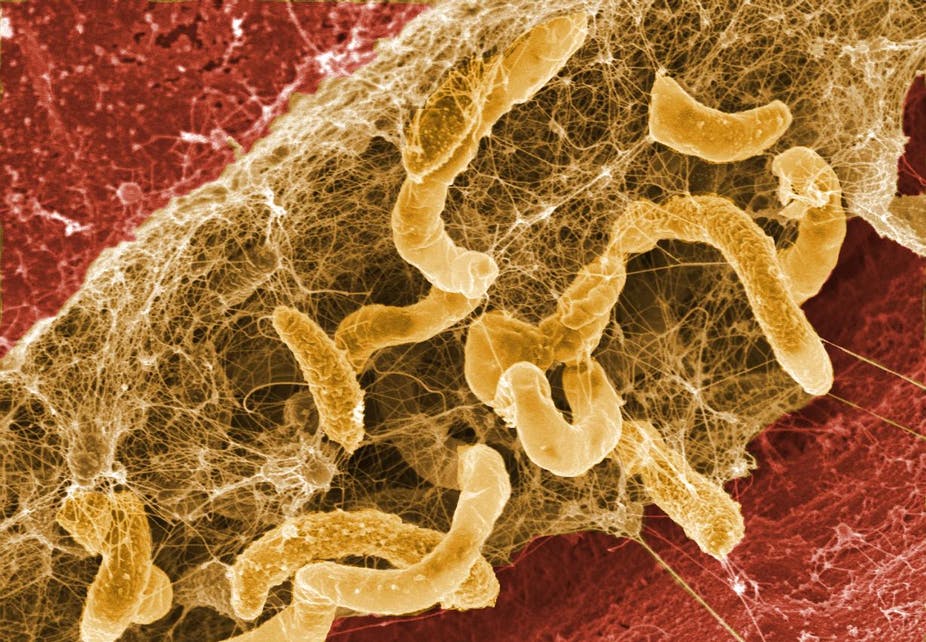A group of bio-engineering researchers from the universities of Leuven and Oxford have developed a way of tackling the problem of the development of resistance to antibiotics by bacteria.
The development centres on biofilms, cells which produce a sticky substance known as EPS allowing them to adhere into a matrix that can build up on any surface. The most commonly known biofilm is dental plaque, which grows on teeth and can cause tooth decay and gum disease.
Biofilms help protect bacteria from the effects of antibiotics. Bacteria using biofilms in this way use shared EPS, and the team set out from the premise that if they were to inhibit this shared trait, according to social evolutionary theory they could select against resistance.
In a paper published in the journal Nature Communications, they demonstrate how inhibiting the EPS of the bacteria Salmonella can reduce both the attachment of the biofilm to the cell, and the cell’s tolerance and resistance to antibiotics.
“Without their protective slime layer, the bacteria are washed away by mechanical forces, and can be more easily killed by antibiotics, disinfectants or the immune system,” explained Professor Hans Steenackers, lead author of the study, to the VRT.
In a further step, the researchers looked at how easily the bacteria developed resistance to the EPS inhibitor used in the experiment.
“We found that the bacteria did not become resistant to our intervention, whereas that happened rapidly in response to antibiotics,” Prof Steenackers said. “Moreover we showed that bacteria that were resistant to the new antibacterial substance were out-competed by the bacteria that were not resistant.”
In other words, in a double blow, bacteria can be made to be less resistant, and they in turn help defeat bacteria that are resistant.
“In contrast to classic antibiotics, we see that this substance does not select for, but against resistance. Treatments which act against cooperation among bacteria could therefore be the solution for the current problem of antibiotics resistance,” he said.
Alan Hope
The Brussels Times

